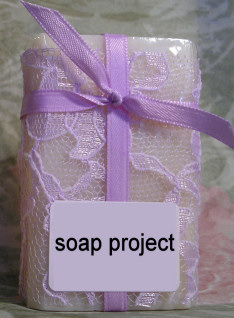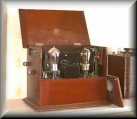|
This is a problem which can cause most trouble.
HERE IS THE EXPERIENCE OF STUDENT EMILY:
Having scripted 4-5 scenes for each episode, I carefully timed
each scene when it was signed off by teacher.
I read the scene aloud, playing the part of each character
myself, but allowing for pauses, spot effects (e.g. door opening
4.2.1) and SFXs (e.g. magic spell music 4.3.2). I added 5 seconds
"to be safe", and then noted down in my notebook how
long each scene should take.
Very pleased with myself, I found that each episode was just
short of 5 minutes - exactly right, given that I had excluded
the signature tune. However, when it came to recording, my actors
were adding up to a minute per scene! They doubled in length!?
At first I thought I had grossly miscalculated the times,
but when it happened in every single scene, I couldn't justify
that thought. I learned 'the hard way' that good actors (which
I am not!) become so involved in their work that they convey
the script in an expressive way, and with such passion that precious
seconds are added to every phrase.
Furthermore, the really enthusiastic ones get so carried away
that they even add their own words to your carefully-planned
script, and before you know it, you are a minute over time.
How infuriating!
Then, you have to cut down a minute of this script which you're
now quite protective about, and sacrifice jokes, pauses, humour
and irrelevant remarks just to have it fit into the right time
slot!
At times, it is impossible to cut out single words in post
production because sometimes they are slurred with a word that
you need to keep.
Episode 2 was a distinct problem in my case, as scenes 4.2.3-4.2.4
were recorded with programme being played through the mics, including
music that could not be further edited for obvious reasons.
I was disheartened to find that my only solution was to cut
out much of the script that I really liked, leaving only the
essential plot for the rest of my clump to make sense.
I felt like the quality of my work had deteriorated immensely
because only the skeleton of my script was left… all the
meat was cut off it. Nevertheless, it appears that that is radio
drama, and whether I like it or not, a five-minute time slot
will not expand or retract to fit my needs, so I suppose I'm
grateful to have learned this valuable (however painful) lesson
at University rather than in "the real world".
As it turns out, I was struggling with this issue so much throughout
the production process, that with the best intentions, I emailed
my colleagues and warned them of the 'time-keeping' danger, explaining
to them what exactly my process had been and where I went wrong.
Ironically, some of them took my advice too strongly and then
produced scenes that were under time by a minute or two! Not
fair, is it? You win some, you lose some. |



